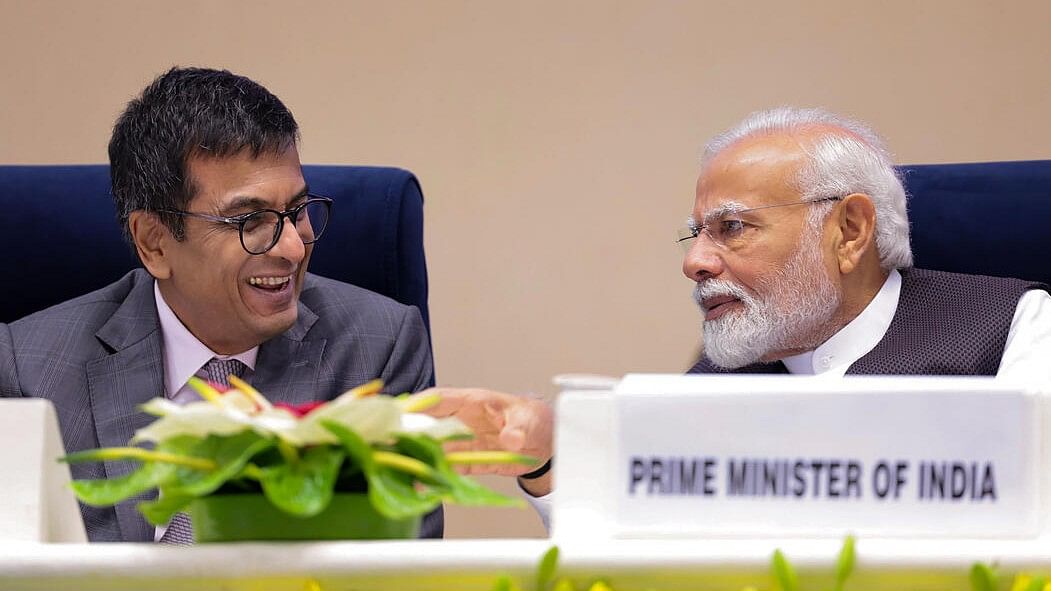
Prime Minister Narendra Modi with the Chief Justice of India D Y Chandrachud.
Credit: PTI Photo via PIB
Emphasising the spirit of collaboration, Chief Justice of India D Y Chandrachud on Saturday said individuals with diverse backgrounds and even conflicting ideologies came together to draft the Constitution, and the similar bipartisan effort has gone into the passing of women's reservation bill in the Parliament.
He said that institutional collaboration is the precursor to solution finding while adjudicating judicial questions and it also plays an important role in increasing access to justice.
Addressing the inaugural ceremony of the Bar Council of India's (BCI) two-day 'International Lawyers Conference 2023’ in New Delhi, he said that drafting of the Constitution of India by the constituent assembly is a classic example of engaging beyond partisan lines.
He said, "Individuals from different regions of India, diverse backgrounds and even conflicting ideologies came together to draft the Constitution in one voice”.
He said, “We find the same bipartisan effort - and this is something to which we as citizens of India must be proud - has gone into the passing of the women's reservation bill in the Parliament”.
Speaking in the presence of the Prime Minister Narendra Modi, the chief justice said it is utopian to think that there will be a day when "we find perfect solutions with no challenges to the justice delivery".
He said while the Constitution provides for separation of power among the legislature, the executive and the judiciary, it also creates a space for institutions to learn from each other and deliver justice.
He said, “Institutional collaboration is a precursor to solution finding not only while adjudicating judicial questions but it also plays a significant role in increasing access to justice”.
The Chief Justice said, “We often forget the abundant examples of collaboration between institutions to further the interest of justice. This holds true not only in lofty constitutional challenges but more frequently in the everyday interaction between the courts and the government."
He said a Constitution bench of the apex court is presently hearing a challenge pertaining to whether a person holding a driving licence for light motor vehicles can drive a commercial vehicle under the Motor Vehicles Act. He said instead of viewing the case as an adversarial challenge, the court and the government are collaborating to protect the livelihoods of millions of drivers across the country.
He pointed out that the ultimate aim of different institutions is the same and that is the progress and prosperity of the nation.
The CJI also commended the Union Cabinet's decision approving phase three of the e-courts project with a financial outlay of over Rs 7,000 crore.
He also cited the slogan for the recently concluded G20 summit -- 'Vasudhaiva Kutumbakam' -- the world is one family.
